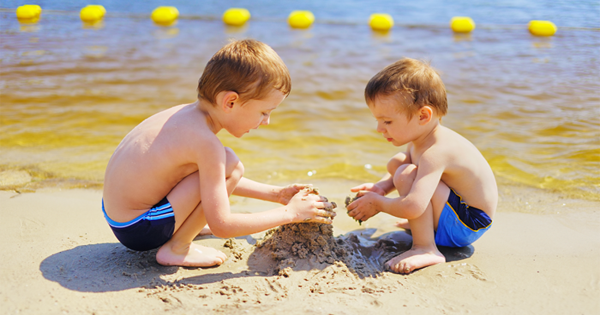Advertisement
Past studies and evidence have shown that intense sun exposure at early ages can increase the risk of developing skin cancer at later ages. Some beaches are already making the effort to provide free sunscreen to help parents protect their children.
New research, however, suggests that sun protection is perhaps not enough for babies – and it’s not because of the SPF.
Babies’ skin is much more delicate than that of adults’, meaning it’s far more likely for a baby to absorb chemicals from the things that come in contact with its skin. In the summer, this could include both sunscreen to bug spray.
The chemicals in these supposedly-protective products can be absorbed into an infant’s internal organs that are not yet equipped to deal with these substances. And after the babies’ skin takes in some of these chemicals, it’s only what is left – after sweating and water exposure and rubbing – that actually protects them from sun.
Because of all these factors, doctors are now advising parents not to focus on applying sunscreen to their young children, but rather to focus on reducing sun exposure. This could mean a variety of solutions, like bringing sun shades or having clothing to protect from the sun. In regards to the chemical content of bug spray, doctors suggest buying screens and netting to keep bugs away.
The FDA and the American Academy of Pediatrics have specifically noted that parents with babies under six months should opt to keep their child out of direct sunlight as opposed to rely on sunscreen for protection. For children older than six months but still under two years of age, doctors strongly recommended dressing them in sun-protective clothing.
Sunscreen can be applied, but parents should double check to make sure the products they’re using are made specifically for children, and applied every two hours, as per the instructions on the bottle.
Because the proportion between the surface area of a child’s skin and their body volume is so large, children are more likely to get dehydrated in the heat than are adults. It’s crucial to keep children protected from the sun and the heat, as well as hydrated to ensure optimal health and happiness.




